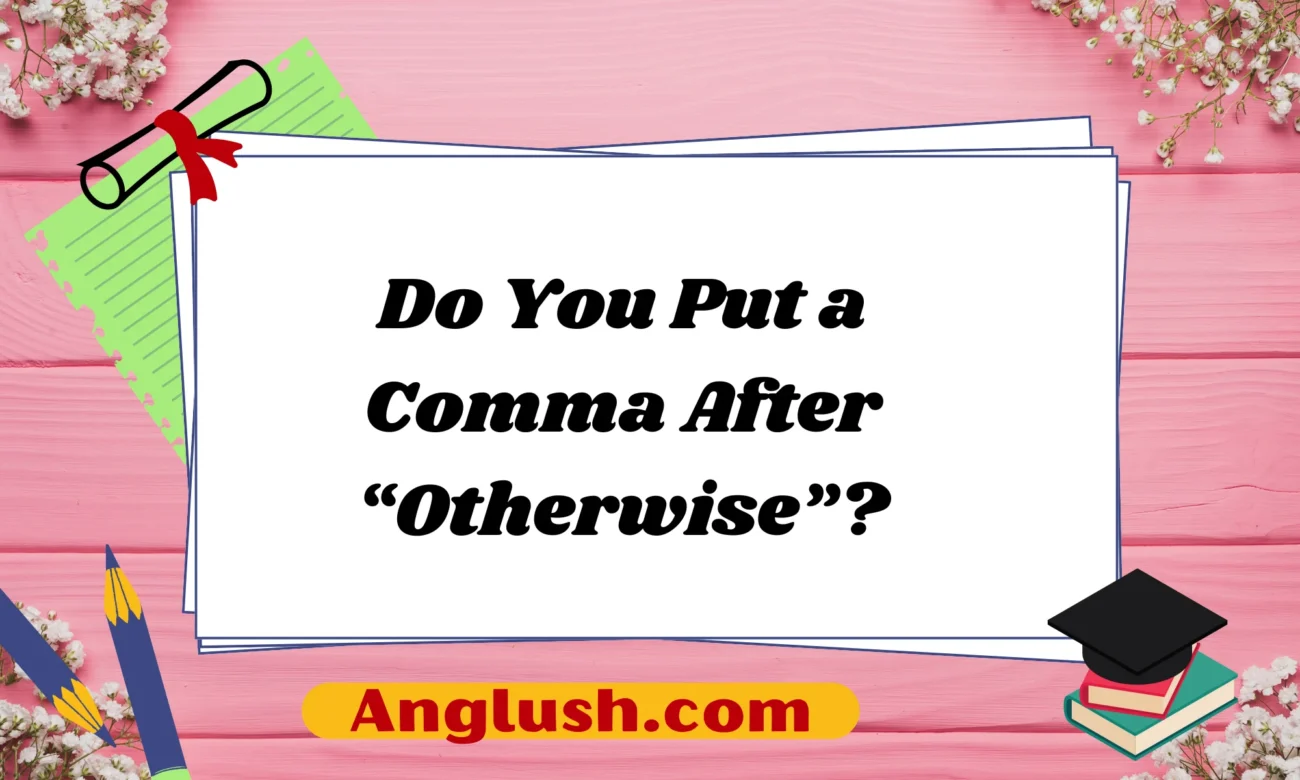The word otherwise is commonly used in writing and conversation to indicate an alternative, a consequence, or a contrast. However, a common question that arises is whether a comma should follow otherwise. The answer depends on the role otherwise plays in a sentence.
In this article, we’ll explore the rules governing the use of commas with otherwise, provide clear examples, and discuss how sentence structure affects punctuation. By the end, you’ll have a solid understanding of when to use a comma after otherwise—and when to leave it out.
Understanding the Word “Otherwise”
Otherwise has several meanings, and its function in a sentence determines whether a comma is needed. Let’s look at its different uses:
1. As a Conjunctive Adverb
When otherwise is used as a conjunctive adverb, it connects two independent clauses. In this case, a comma typically follows otherwise to improve clarity.
✅ Example:
- You should submit the application before the deadline; otherwise, you may not be considered for the position.
In this example, otherwise links two independent clauses and signals a consequence. A comma is necessary for readability.
2. As a Sentence Adverb
When otherwise modifies the entire sentence, it is often followed by a comma.
✅ Example:
- The project was challenging. Otherwise, it was a great learning experience.
Here, otherwise introduces a contrasting idea. The comma helps to create a natural pause.
3. As an Adjective or Adverb (No Comma Needed)
When otherwise is used to mean “in other respects” or “in another manner,” a comma is generally not required.
✅ Example (adjective):
- His argument was flawed but otherwise well-structured.
✅ Example (adverb):
- We need to follow the instructions; otherwise things could go wrong.
Here, otherwise is modifying the word well-structured or the verb go wrong, so no comma is needed.
When to Use a Comma After “Otherwise”
A comma is generally used after otherwise in these cases:
- When it acts as a conjunctive adverb between two independent clauses.
- When it serves as a sentence adverb introducing a contrasting thought.
Examples:
- You must wear a helmet; otherwise, you won’t be allowed to ride.
- The weather was unpredictable. Otherwise, the trip was perfect.
When NOT to Use a Comma After “Otherwise”
A comma is not needed when otherwise is:
- Modifying a noun, adjective, or verb.
- Used within a clause without separating independent thoughts.
Examples:
- The instructions were unclear but otherwise helpful.
- If you don’t want to go, we can otherwise stay home.
10 Texting Examples Using “Otherwise”
When texting or messaging, punctuation is often more relaxed, but using otherwise correctly can still improve clarity. Here are 10 examples optimized for readability:
- Are you coming to dinner? Otherwise, I’ll order for myself.
- Let me know if you need help; otherwise, I’ll assume you’re good.
- The store closes at 9. Otherwise, I’d have gone later.
- Do you want to watch a movie? Otherwise, we can go for a walk.
- Please call me when you get there; otherwise, I’ll worry.
- Are you free to meet? Otherwise, I’ll schedule for tomorrow.
- I need your response today. Otherwise, we might miss the deadline.
- Check the weather before leaving. Otherwise, you might get caught in the rain.
- Let’s leave early to avoid traffic. Otherwise, we’ll be late.
- If you don’t like that restaurant, we can go otherwise. (In this case, no comma is needed.)
Conclusion
Whether or not to use a comma after otherwise depends on how the word functions in a sentence. If otherwise is linking two independent clauses or introducing a contrasting thought, use a comma. If it’s modifying a word within the sentence, a comma is usually unnecessary.

